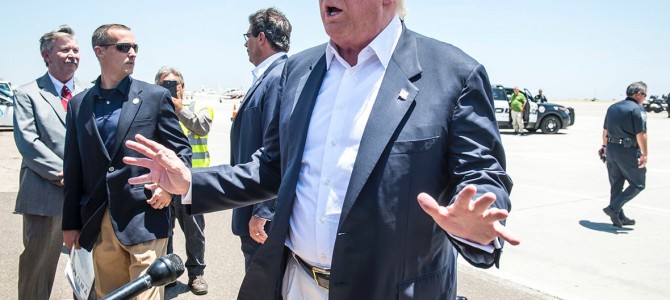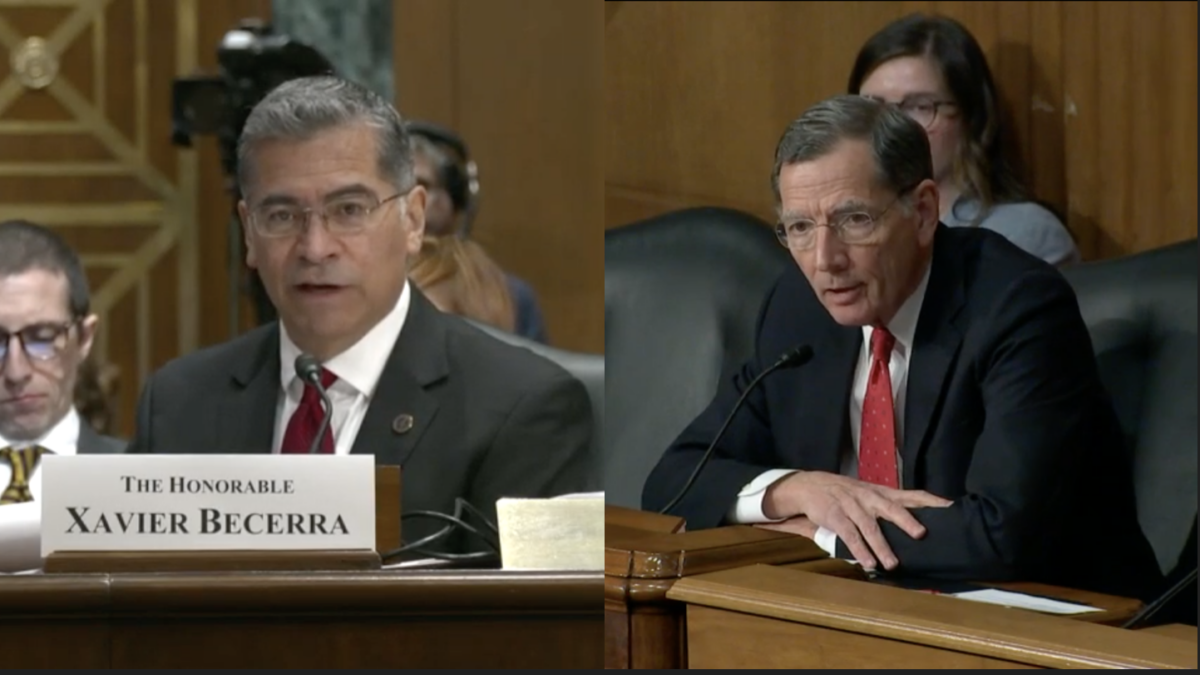
If you oppose Donald Trump for president, there’s a good chance it’s because of his extreme pronouncements against illegal immigration. But what if, in practice if not in sentiment, Trump is the only candidate in the running with a chance of passing comprehensive immigration reform?
After all, we’ve lived through decades of presidents who nominally support immigration reform with little to show for it. Few have been so consistently and rhetorically supportive of providing a path to citizenship for Hispanic populations as Barack Obama.
On May Day in 2006, then-Sen. Obama even traveled from DC to show his support to 400,000 mostly Hispanic marchers in his home city of Chicago. This public validation of immigrant populations did not go unnoticed by the Hispanic community.
Obama deepened the message during his 2008 presidential campaign, when he spoke directly to the National Association of Latino Elected and Appointed Officials. There, he promised “reform that finally brings the 12 million people who are here illegally out of the shadows by requiring them to take steps to become legal citizens,” concluding the speech with “Si se puede,” Spanish for “Yes we can.”
Who, observing these ovations, would have guessed that this president would go on to preside “over one of the largest peacetime outflows of people in America’s history,” as The Economist put it in 2014? Not Hispanic voters, who favored Obama to John McCain in 2008 two to one.
Trump was derided not long ago for invoking President Eisenhower’s mass deportation of Mexican nationals, yet Obama has matched Eisenhower by deporting nearly two million undocumented immigrants through aggressive Immigration and Customs Enforcement operations. Meanwhile, immigration reform has languished, pushed aside in lieu of other priorities like health care.
Elections Are a Broken Forum for Self-Expression
Most elections, people ask themselves the same thing: Which candidate comes closest to sharing my values and believing what I believe? How someone answers almost always indicates who that person will vote for, whether it’s over a single issue like immigration or a more broad set of commitments.
This is called expressive voting. The theory says casting your ballot has more in common with engaging in applause, communicating approval or affiliation, than a careful appraisal of whose election is most likely to advance your preferred policies.
Expressing disapproval is equally common. For example, dozens of websites now sell t-shirts that boldly proclaim “Anyone But Trump.” Trump’s well-publicized, often derogatory statements make him a convenient token to contrast against one’s own moral sanity. But while self-expression is a fantastic thing, elections have real consequences that go beyond the semiotics of our averred alliances.
In practice, a vote is not necessarily an endorsement of a particular person’s character or the moral values listed in a brochure. It’s not even an endorsement of the contents of a policy platform. A vote is simply a miniscule contribution toward determining who holds office, with all the internal constraints and second-order effects that implies.
Why Only Nixon Could Go to China
As we’ve seen with Obama, expressive support for a policy is a weak indicator of whether that policy will pass. More paradoxically, however, why did he do something close to the opposite?
One theory says that Obama eyed immigration reform as the object of his second term and thus doubled down on deporting illegal immigrants, particularly convicted felons, in order to (a) set the stage for a path to citizenship, and (b) purchase credibility with nativist forces in Congress. George W. Bush likewise supported immigration reform his whole presidency, but was relentlessly stymied by these same factions. Although the border hawks in Congress also desire to see reform, they seem unable to trust anyone they perceive as sympathetic to amnesty, even a member of their own party.
Economists Tyler Cowen and Daniel Sutter formalized this dynamic in their 1998 paper, “Why Only Nixon Could Go to China.” As they point out, Nixon held close ties to the anti-China lobby and had built a tough, anti-communist reputation. But once in office, “Nixon shocked the public by opening diplomatic relations with China and traveling to Beijing to meet with Chairman Mao.”
There are dozens of historical examples of right-wing politicians enacting left-wing policies, and vice versa. The reason, Cowen and Sutter argue, is that when a politician acts against his ideological commitments he credibly signals the desirability of a course of action to his end of the spectrum, and therefore wins bipartisan support.
Immigrants for Trump?
The Nixon paradox tends to be more the exception than the rule, but perhaps it’s the case when it comes to immigration reform. As a foreign national myself, I have a personal interest in seeing visa applications expanded and processes streamlined, and for it to become easier to obtain a green card.
So while I abhor the halo of xenophobia that surrounds Trump and his zealous supporters, it’s not obvious to me that his presidency would be the worst outcome for advocates of more open borders. It is often forgotten, but Eisenhower’s two terms as president also saw the largest expansion of the Bracero guest worker program in its history, for which thousands of Mexican-Americans owe their naturalization.
The more general lesson is that politics is counter-intuitive. Instead of throwing support behind the candidate you most identify with in the abstract, a more rigorous approach considers the total effect the winning candidate is likely to have on future states of the world, intended or not.
So when it comes to immigration reform, I can’t help but be reminded of what Nixon said to Mao upon their first meeting: “The most important thing to note is that in America, at least this time, those on the Right can do what those on the Left can only talk about.”








